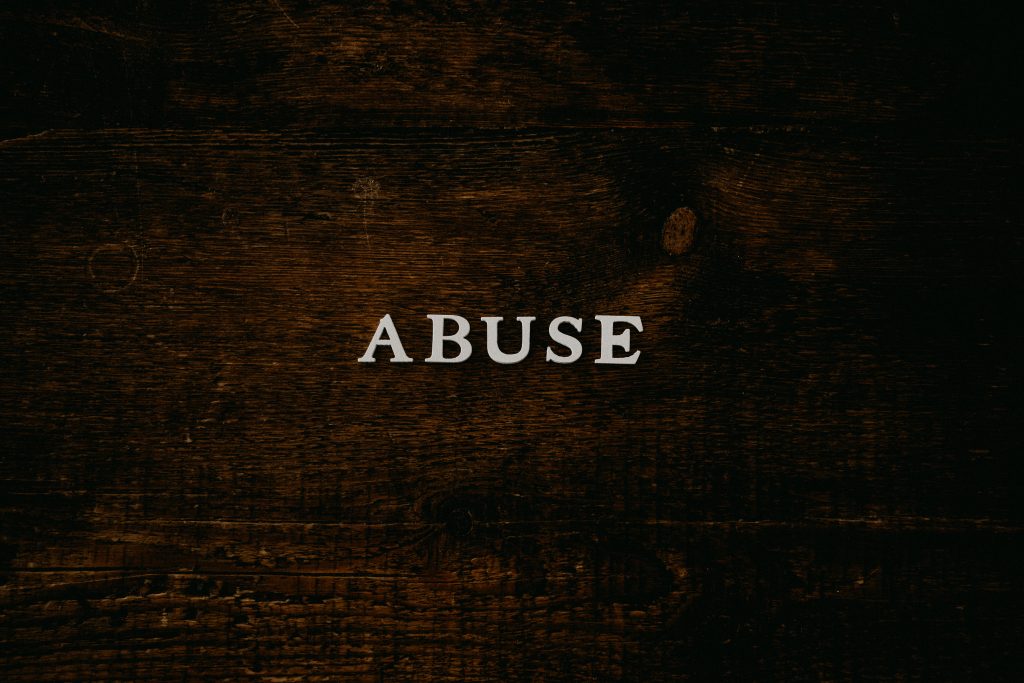7 Phrases Emotional Abusers Say

Writer’s note: Hey, Psych2goers! This article is not meant to be a form of personal attack, instead it aims to allow you to self-reflect and identify the words that emotional abusers could say. It is important to understand that sometimes some people perhaps have a problem in communicating their thoughts and feelings effectively that might be perceived by the outsiders as abusive. Therefore, it is crucial that you trust your gut instinct and consult trustworthy people around you before making any important judgment and decision.
According to the Centers for Disease Control and Prevention (CDC), intimate partner violence (IPV) is a grave, preventable public health problem that affects millions of Americans. The term “intimate partner violence” refers to physical violence, sexual violence, stalking, or psychological harm by a current or former partner or spouse.
Carney and Barner (2012) investigated three aspects of IPV, namely emotional abuse, sexual coercion, and stalking/obsessive behaviour. There were high prevalence rates of emotional abuse, averaging around 80%; 40% of women and 32% of men reported expressive aggression, and coercive control was reported by 41% of women and 43% of men. Besides that, recent findings from the National Intimate Partner & Sexual Violence Survey (NISVS) by Black et al. (2011) found that roughly 50 percent of Americans reported encountering constant emotional abuse by a partner. Psychological aggression was measured by combining questions based on both expressive aggression (e.g. name calling) and coercive control (e.g. isolation tactics or threats of harm). It was reported that 48.4% of women and 48.8% of men experienced psychological aggression by an intimate partner. Therefore, the most common form of IPV was emotional abuse.
Verbal abuse is a form of emotional abuse in which someone repeatedly uses phrases to maintain control and power over someone (Pietrangelo & Legg, 2019). An emotional abuser uses words as a “weapon” to attack and negatively define another person. This type of abuse comes in many forms; ranging from tumultuous rants to passive-aggressive remarks (Brogaard, 2016).
People who are abused might develop “immunity” and become so accustomed to hurtful phrases uttered by the emotional abusers that they might not even realize they are being abused. Now, let’s learn what are some of the things that can be said by an emotional abuser:
- Withholding – “No, there’s nothing important.”

Your colleague secretly dislikes you and wants to make you appear incompetent to your boss and other colleagues. As an event planner for the company, you asked your colleague whether there’s anything important you can take note of but she avoids you and refuses to communicate with you. When you present to the client about the menu plan of the event, the client becomes enraged. He shouts, “Didn’t I already tell one of you guys that I am allergic to seafood? I have once been admitted to the emergency room due to anaphylaxis after accidentally eating seafood, and now you are telling me that you are going to serve seafood at my birthday party?” You direct your gaze to your co-worker, the corner of her lips edges into a tiny curl, she seems to be restraining herself from smiling.
Emotional abusers might withhold information and fail to share their thoughts and feelings. By employing this form of emotional abuse, they are refusing to engage with their partner in healthy conversations. Anything that they do share with their partners is pointless or obvious. Even if they share anything, it is entirely factual and functional information in which their partner could have searched for it online, read on his or her Facebook wall or Instagram, or make sense of it on their own. This act of withholding is not only limited to an intimate relationship, it can also happen between friends and co-workers; when an individual tries to control or domineer over another person by refusing to authentically communicate. Like what has been portrayed in the above example, a co-worker who is collaborating with you on a project and refuses to divulge crucial information from the client so that you appear incompetent to your boss and the client.
2. Discounting – “You are too sensitive. You are making a big deal out of nothing.”
Emotionally abusive people may involve in discounting which is an effort to repudiate the victims from any right to express their thoughts and feelings. The victims may be consistently told that they are too sensitive, too childish, has no sense of humour, or tends to make a big deal out of nothing. The inner reality of the victims is denied and invalidated and the abusers indirectly tell their partner that how they feel and what they experience are wrong.
3. Disguised as jokes – “You’re so fat! Just kidding!”

Have you ever encountered a person who says the most malicious and upsetting words to you…then after seeing your reaction, they would say…” Just kidding!” It is important to note that abuse is not OK in any form, especially hurtful phrases disguised as jokes.
4. Threatening – “Those children are mine, will always be mine, and if you leave you’ll never see them again.”
Another common form of verbal abuse is threatening. The above phrase is an example of explicit threatening. However, emotional abusers may portray subtler threats, for example they can say, “If you don’t follow my advice, others will find out that you are a very unreliable person.”
5. Judging and criticizing – “You’re fat and miserable and you make me hate you.”

Emotional abusers may also blurt out judgmental, critical and abusive statements towards you. They criticize your outer appearance and insecurities and blame you for being the reason that they hate you. The abusers will mostly point out the negatives and have no intention of seeing the positive side, considering the other’s viewpoint or helping them improve. They will criticize the victims as a person, not just what you did and the consequences of the action. Their intention is to hurt and control the person they offer their “feedback” to.
6. Trivializing – “So? It’s about time for you to be promoted.”
Have you ever felt a great sense of accomplishment for completing a challenging project? Perhaps you finally got the work promotion that you really desire after such a long time. You come back home, eager to tell your partner about the happy news, only to be met with trivializing statements and blank stares. All of a sudden, you feel that feelings of accomplishment are ripped away by your partner. Trivializing is an abusive behaviour that belittles your work, your efforts, your interests or your concerns. Mostly the abusers do this very covertly, often with pretentious innocence.
7. Name calling – “B*tch.” (and countless other derogatory and hurtful curse words)

There can be explicit or subtle name calling. When an emotional abuser is involved in an explicit name-calling, he or she can derogatorily call the victim of the abuse a “b*tch” and other hurtful words. However, on the other side of the spectrum, this can also be barely noticeable and implicitly spiteful, for example, “You are such a victim,” or “You think you are so precious, don’t you?”
Final thoughts
In navigating our relationships, it is crucial to differentiate honesty, criticism and verbal abuse. A British senior therapist, Dr. Sheri Jacobson (2017) has defined each term in her website. She stated that “being honest” is actually just giving an opinion, it can be held up as a holy grail, “the truth” that trumps everything else.
Let’s take the phrase “you get angry too easily” for example. This is a matter of viewpoint. Perhaps from your perspective, if someone is raising their voice, the person is being “angry”. On the contrary, for another person who grew up in a passionate large family where everyone spoke loudly to get their points across, they might feel they were just being excited or passionate, not “angry”. Constructive criticism on the other hand, is when a person acknowledges both sides of the story and offers possibilities. It is generally meant to help someone grow and improve. However, criticism can become negative, in which it can appear as “I am right about this and you are therefore wrong”, thus leading the other person to feel judged and cornered. This is verbal abuse, in which the abuser has no intention of seeing the positive side, deliberating the other’s viewpoint or helping them improve. Instead, they wanted to hurt, belittle and control the victims. It causes the victims walking on eggshells in the presence of the abuser.
Abuse can gradually and insidiously chip away at self-esteem. Oftentimes, both the abuser and the victim in a relationship already have damaged self-esteem since childhood. It is definitely daunting to stand-up to an emotional abuser, especially in a long-term relationship. In most cases, it requires the support and validation of a group, therapist, or counsellor to confront the abuser.
REFERENCES
Black M.C., Basile K.C., Breiding M.J., Smith S.G., Walters M.L., Merrick M.T., et al. (2011). The National Intimate Partner and Sexual Violence Survey (NISVS): 2010 summary report. Atlanta, GA: National Center for Injury Prevention and Control, Centers for Disease Control and Prevention.
Brogaard, B. (2016, December 6). The Best Way to End Verbal Abuse. Psychology Today. https://www.psychologytoday.com/us/blog/the-mysteries-love/201612/the-best-way-end-verbal-abuse.
Carney M.M., Barner J.R. (2012). Prevalence of partner abuse: Rates of emotional abuse and control. Partner Abuse. 3(3):286–335
Centers for Disease Control and Prevention. (2020, October 9). Intimate Partner Violence . Centers for Disease Control and Prevention. https://www.cdc.gov/violenceprevention/intimatepartnerviolence/index.html.
Evans, Patricia (2009). The Verbally Abusive Relationship (pp. 84-85). Adams Media. Kindle Edition.
Jacobson, S. H. (2020, June 23). Honesty, Criticism, or Verbal Abuse? The Crucial Difference You Need to Know. Harley Therapy™ Blog. https://www.harleytherapy.co.uk/counselling/honesty-criticism-or-verbal-abuse.htm.
Pietrangelo, A., & Legg, T. J. (2019, March 29). What Is Verbal Abuse? How to Recognize Abusive Behavior and What to Do Next. Healthline. https://www.healthline.com/health/mental-health/what-is-verbal-abuse.







Responses